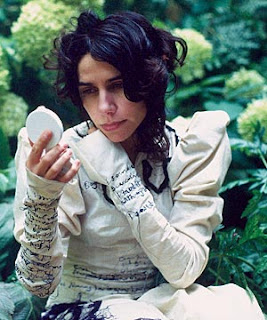
Neon Wild.
It seems to be increasingly rare to find a band that can permeate the sensory receptors with a deep and wholesome sound without ripping off the monsters of music gone by. We have been exposed to roughly six decades of genres breaking through and adapting mainstream and pop culture, so it is no wonder that most new music is comparable to something previously – some more closely than others. But then every so often there is a band that slip through the filter who remain both strikingly nostalgic, but also refreshingly contemporary. Animal Games are a band who have struck the balance well.
Rising out of Los Angeles with the material they recorded independently throughout the empty rooms and garages of Glendale and Santa Fe Springs, the five-piece with an affinity for 1980’s rock culture have been showcasing their material around California since they began in 2010. Beginning as a shared concept between guitarist Frank Tobias and bassist Juan Pablo Grado (surely a name for the stage) in 2007, the band gathered pace after picking up members Matt Hansen, Daniel Gonzalez and Chris Buxton-Smith on drums, keys and vocals. The set they developed together became most prominently reminiscent of The Cure and The Smiths amidst other tycoons of vibrant rock.
Neon Wild is the debut EP from the band, and the five track offering fluctuates between the evidential traces of influence, whilst injecting a healthy dose of identity and presence to their hand-crafted brainchild. One of the more contemporary citations of Animal Games pertains to that of The Killers in the former days of their career, and the two final tracks on the EP make use of a call and answer chorus with the vocals relaying with tones of depth to a back wall of chanters. The keys and drums on Lullaby as well as the brass effects on Cold Jacket also bear the same pace and style as the glitzy Vegas rockers.
Other tracks on the EP include Casual Touch, where the drums drive through on the ride with jangley guitars to cushion the Robert Smith-esque vocals. Then oddly enough if you could visualise The Looking Glass by the way it sounds, it would look like the pieces of a shattered mirror dropping through the air given the fragmented resonant effect used on the instruments, with the vocals akin to Pearl Jam. The title track Neon Wild seems to pertain more to the indie genre of the early Noughties musically but manages to steer away from a possible cliché.
Overall Animal Games have put themselves together a very well-to-do EP, which is also incredibly radio friendly. The main risk they run is to become too unvaried in the long run and after this it’ll just be a matter of showing fans and listeners the next chapter - as this is only the first release from the band after all.
Neon Wild is available for download on their website www.animalgamesla.com – which is far better to visit directly, as by typing their name into Google you will only meet children’s’ gaming sites. The backfire’s on Animal Games for choosing a name of such implication.








